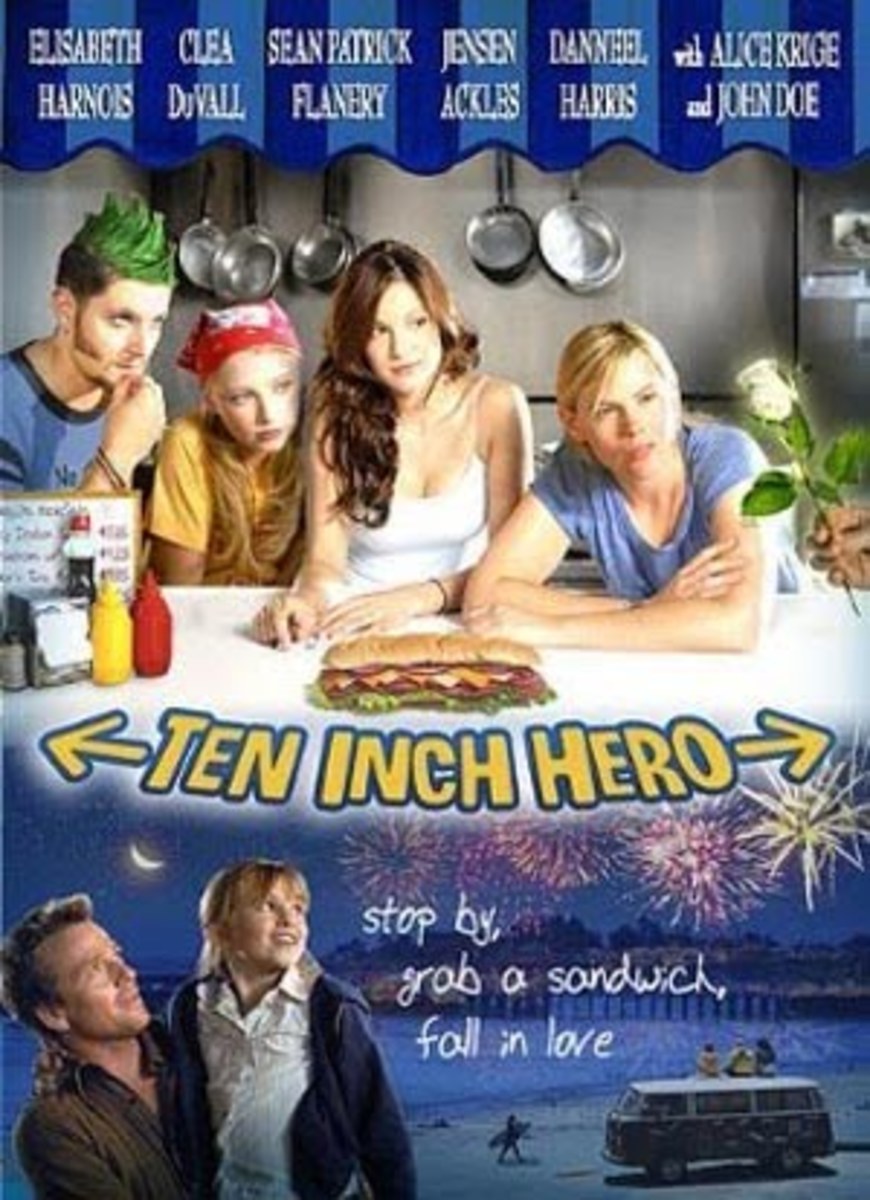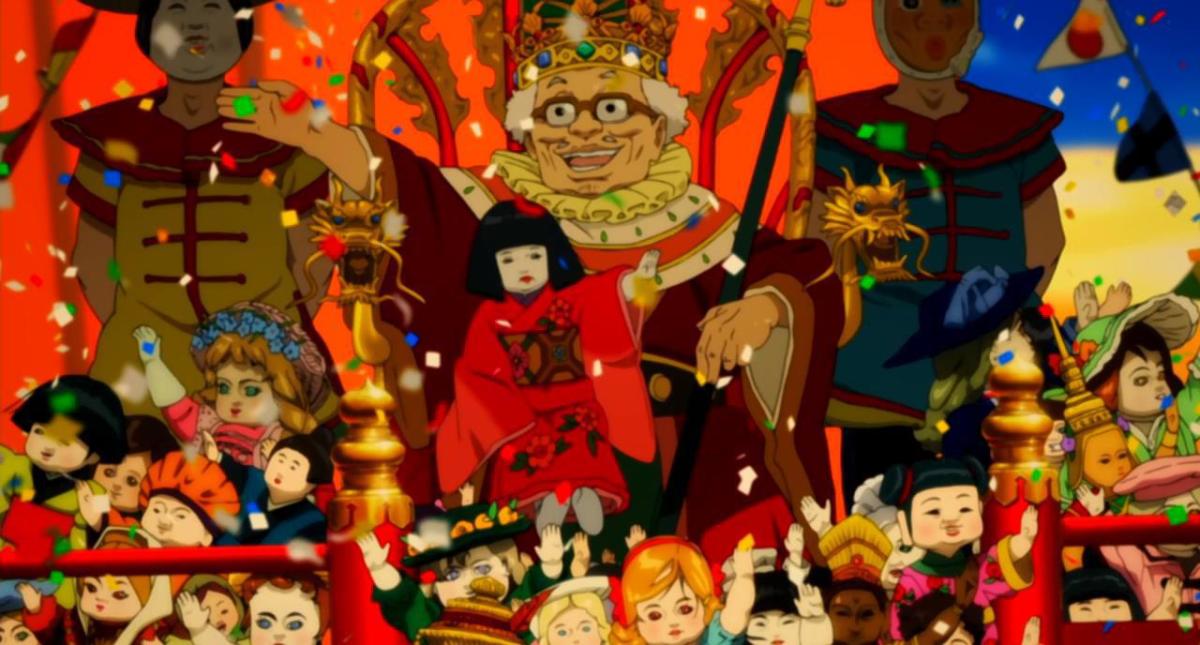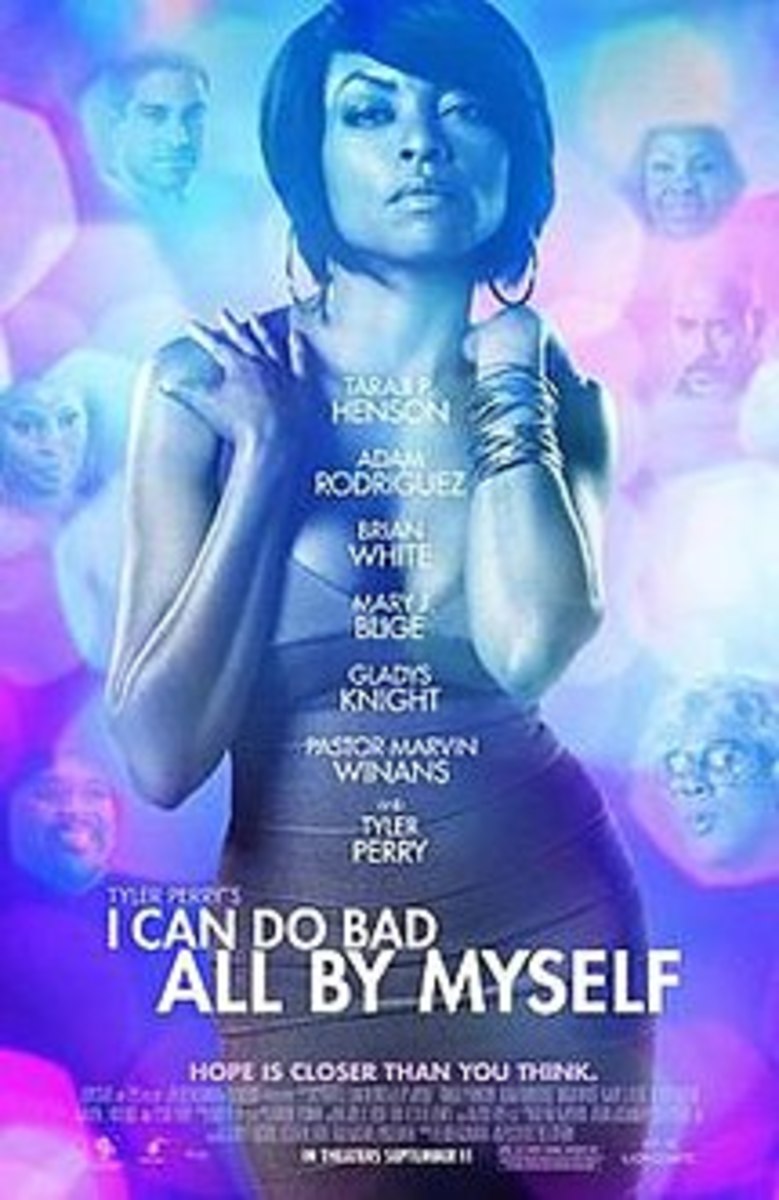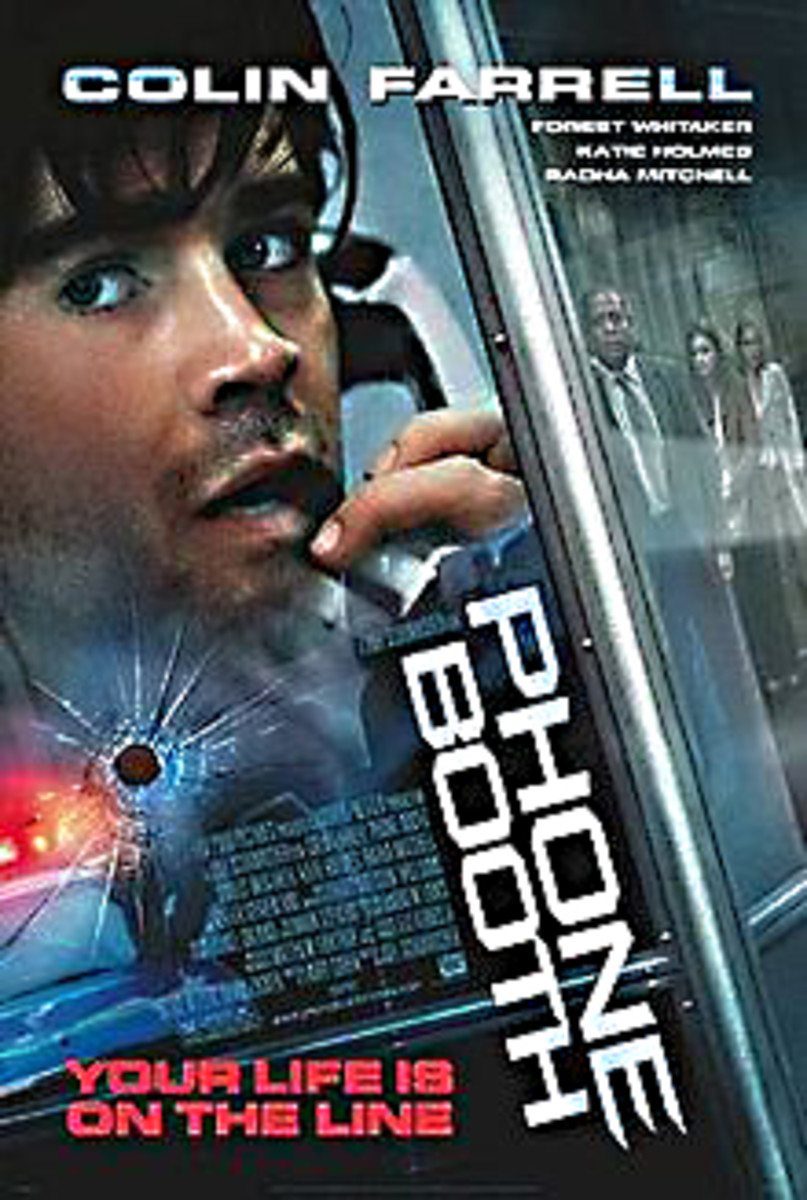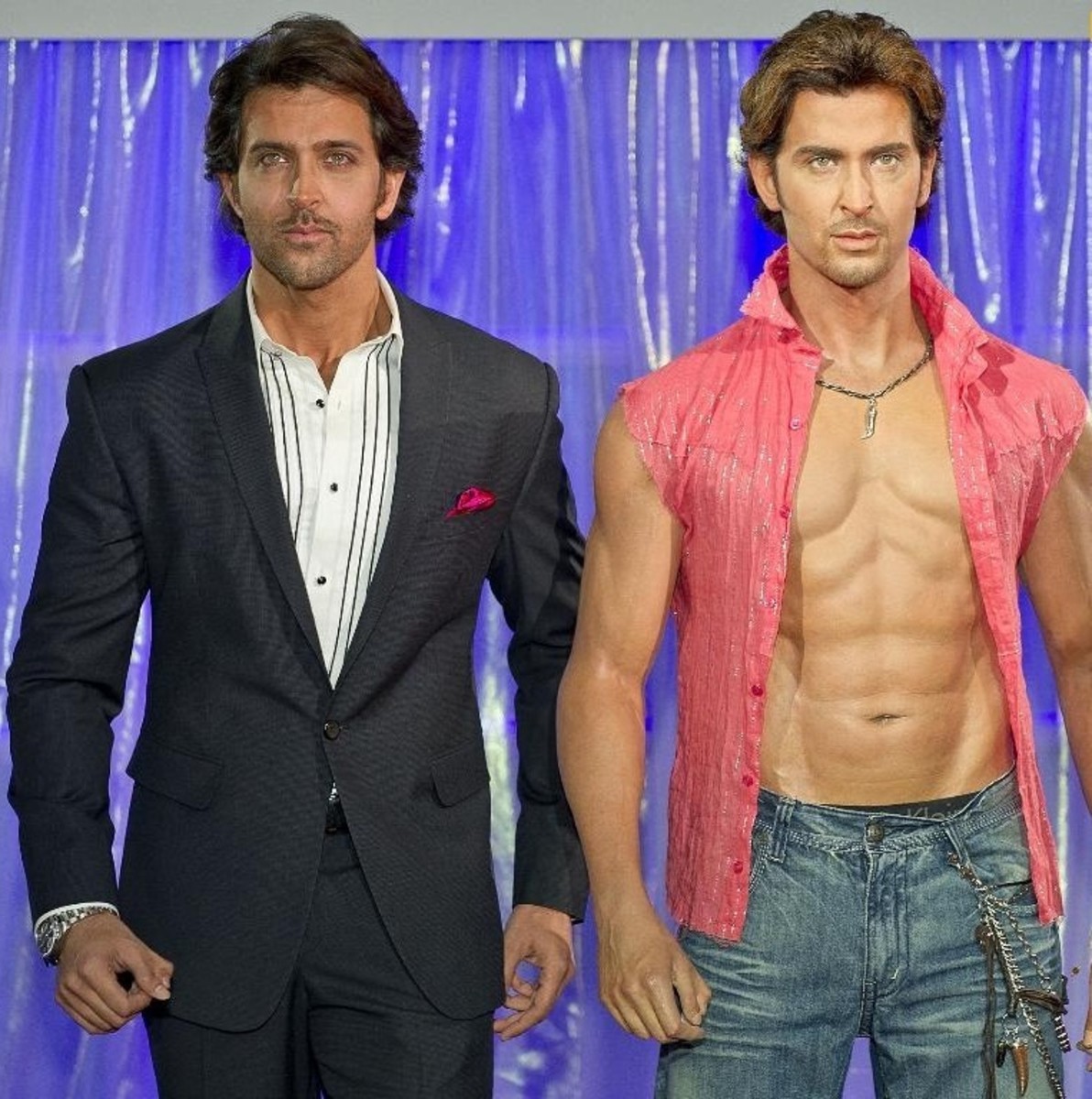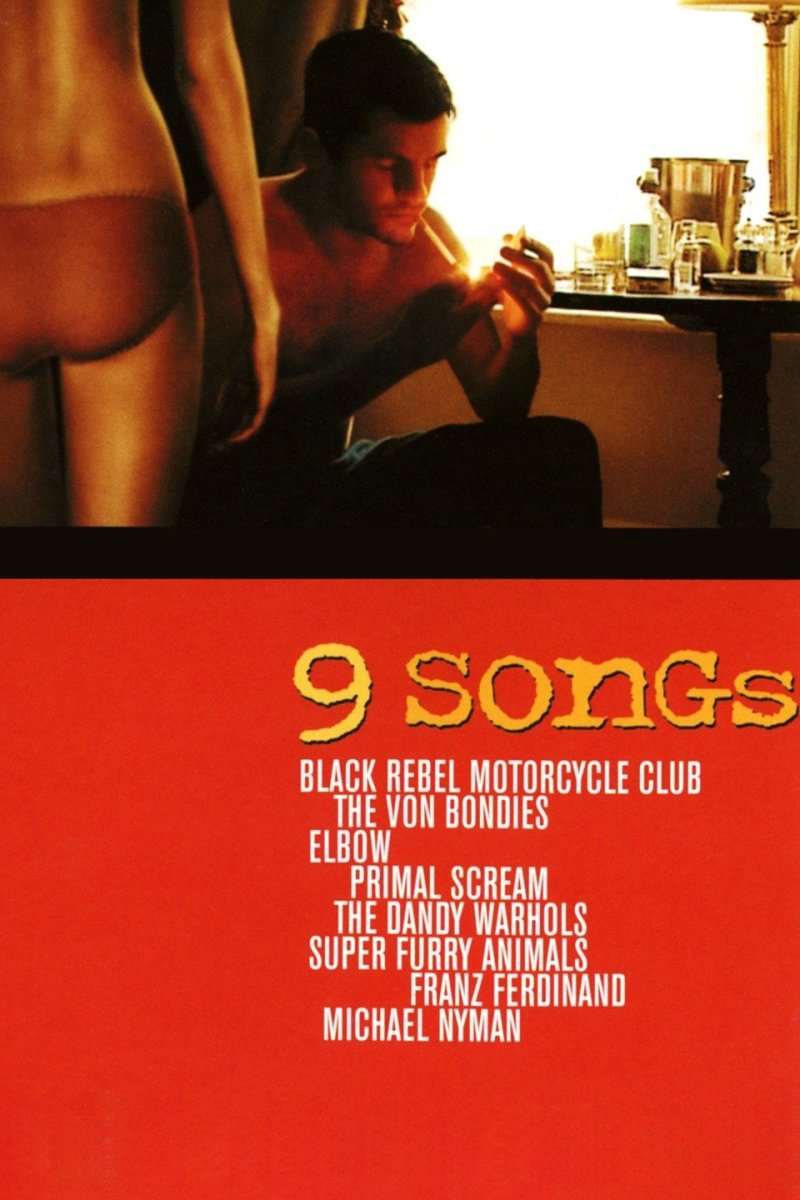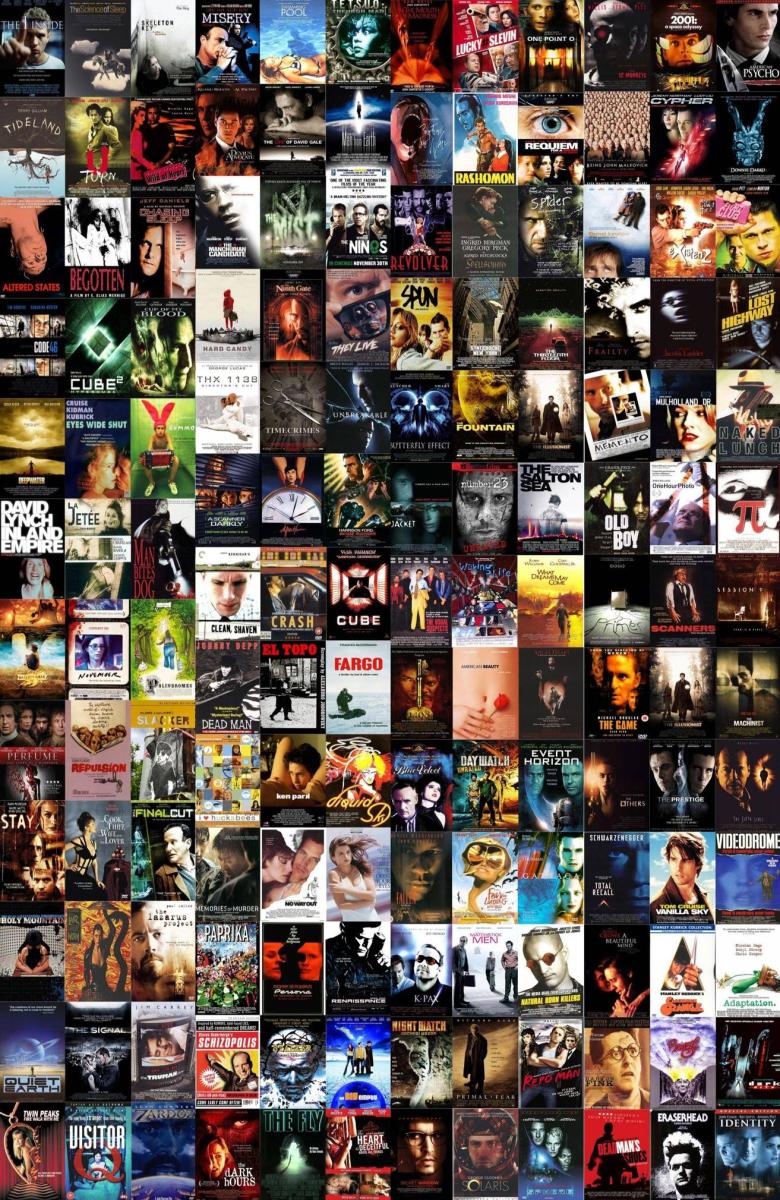Film Review: Back to the Future Part II
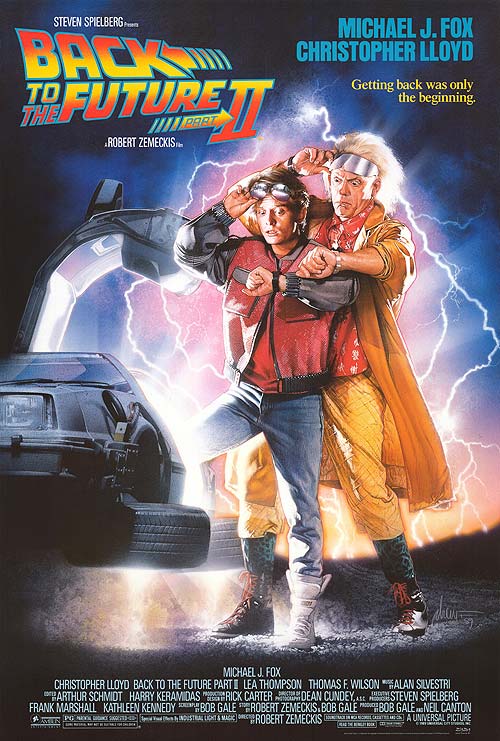
Background
In 1989, Robert Zemeckis released Back to the Future Part II, as the second part of the Back to the Future trilogy. Starring Michael J. Fox, Christopher Lloyd, Lea Thompson, Thomas F. Wilson, Elisabeth Shue, James Tolkan, Jeffrey Weissman, and Flea, with a cameo by Elijah Wood in his first film appearance, the film grossed $332 million at the box office. It won the Saturn Award for Best Special Effects, the BAFTA Award for Best Visual Effects, a Golden Screen Award, a Young Artist Award, and the Blimp Award for Favorite Movie Actor and Favorite Movie Actress at the 1990 Kids’ Choice Awards. It was also nominated for the Academy Award for Visual Effects.
Synopsis
Doc Brown takes Marty McFly and his girlfriend, Jennifer, to 2015 in an attempt to save his son from trouble. But while they’re successful, the elderly Biff Tannen steals the DeLorean and a sports almanac to make his young self rich. He succeeds and alters the present into a dystopia where he is in control as a billionaire, causing Doc and Marty to return to 1955.
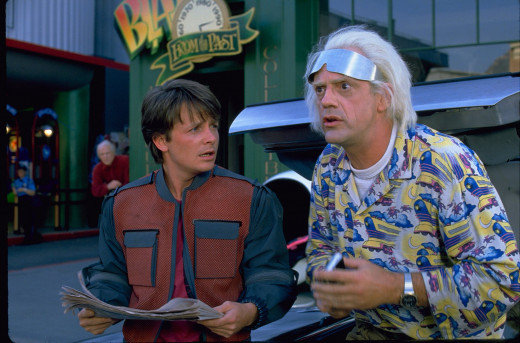
Review
Just as well made as its predecessor, Back to the Future Part II provides another enjoyable experience to the franchise, so engrained into American culture that it was given its own day of celebration on October 21, 2015. Much of it is due to how the future is portrayed as it feels that the filmmakers didn’t want to try and make a future that was too “far out,” by combining technology that would feel at home in something like The Jetsons with that found in the late 80s and just having a good time with it. And though some of it was way off base, like the fashion and the fact there’s flying cars and hoverboards, other aspects would actually fit in today’s world. Take Marty Jr. deciding to watch multiple shows at once on TV. Not only are there televisions that have picture in picture as a feature, but people will often have multiple tabs open on internet browsers. And then there’s the Chicago Cubs winning the World Series. It’s a humorous joke, making fun of the fact that the team hadn’t been to the World Series since the 1940s. But it was nearly a reality as the Cubs were in the playoffs against the New York Mets, only to get eliminated on October 21.
And when it comes to Biff and the alternate 1985, the film showcases just what would happen if someone as narcissistic and sociopathic as the character was given a fast track to money and power. Not only is he able to start an empire of successive companies through his gambling, which essentially destroys the environment and the welcoming atmosphere of Hill Valley, but it gives him the potential to kill George McFly and become Lorraine’s abusive husband. Though his intelligence doesn’t change, he still has enough savvy to manipulate the powers that be, seeing as he claims to own the police. The aforementioned alternate Hill Valley Biff ends up creating is an incredibly well done representation of a dystopian society, so much so that it looks like it could exist in the world of Mad Max if the technology were available to allow Biff a high rise casino. His nuclear power plants generate enough pollutant to necessitate an industry to reclaim the waste generated. There’s also the amount of crime that’s so bad it requires citizens to protect themselves and their newspapers with shotguns.
But when it comes to Biff choosing to give his younger self the sports almanac on November 12, 1955, it’s interesting as to why that particular date is chosen. Doc states there’s either some sort of cosmic significance to it or that it’s one big coincidence. However, it could be more than that, seeing as old Biff remembers the day as the time George knocked him out and stole Lorraine from him (believing he had any sort of chance with her in the first place). He sees it as the worst day of his life and thinks it’s the best time to give himself the almanac as he could take the worst day and make it the greatest life.
Further, it seems that Marty gets a sort of character flaw out of nowhere, by losing his temper when someone calls him “chicken.” However, this makes sense and isn’t exactly from nowhere, seeing as it looked like he was willing to get into a fight in the first film, but it wasn’t from somebody calling him a name. In fact, no one had called him a name in the first films, so this isn’t exactly a character flaw out of nowhere, but it’s giving him more depth as a character.
the postings on this site are my own and don't necessarily represent WNI's positions, strategies or opinion

